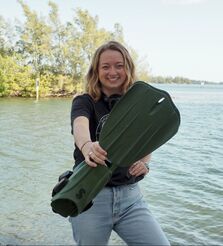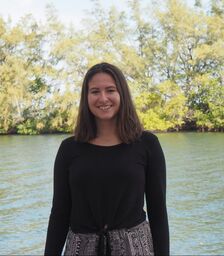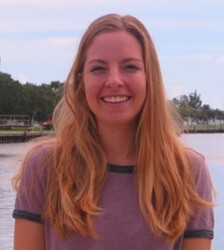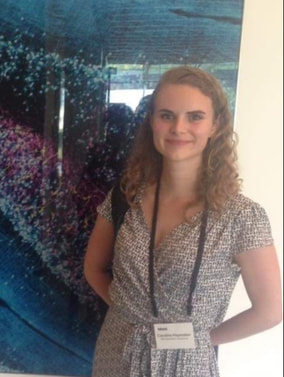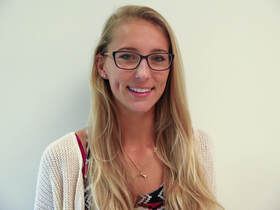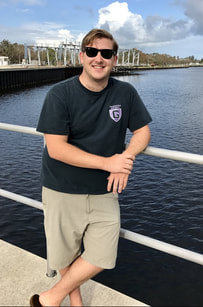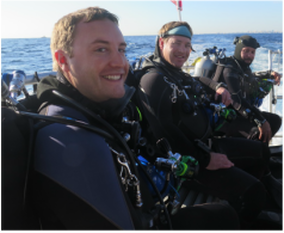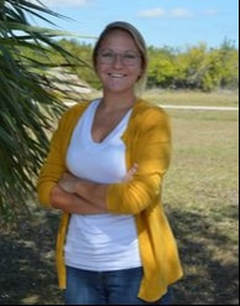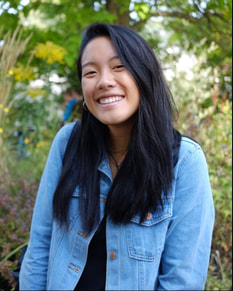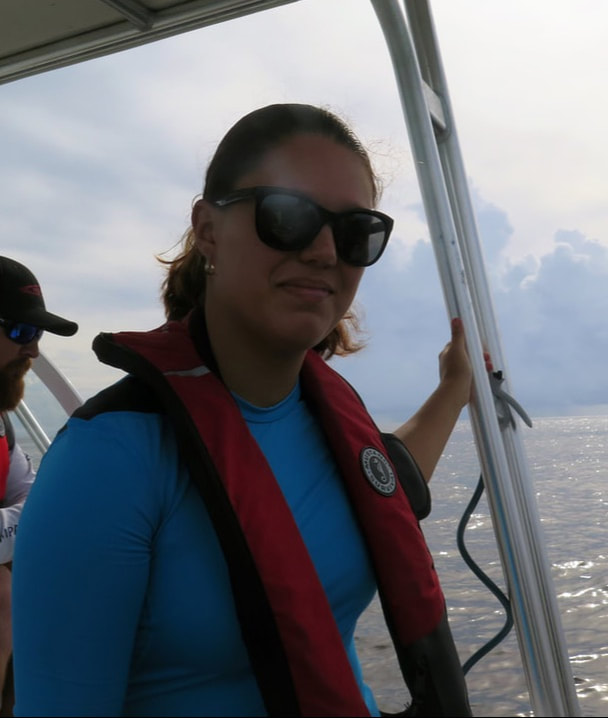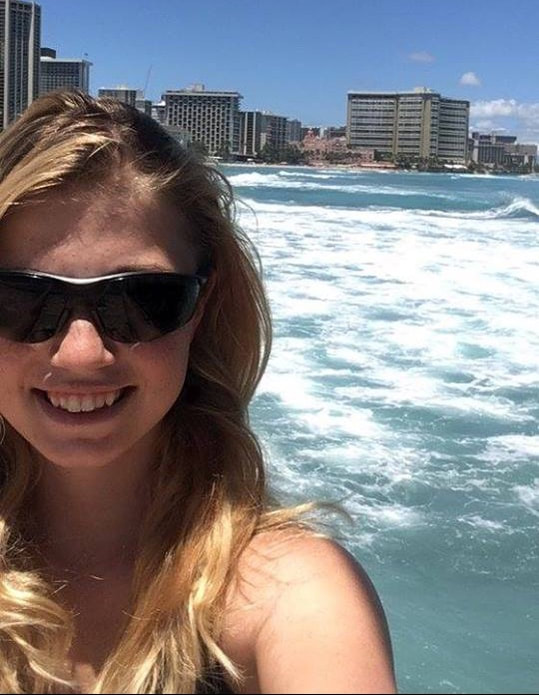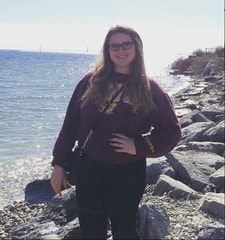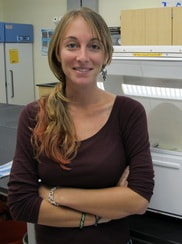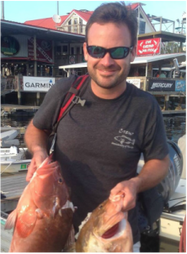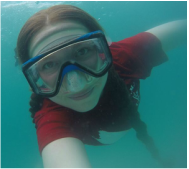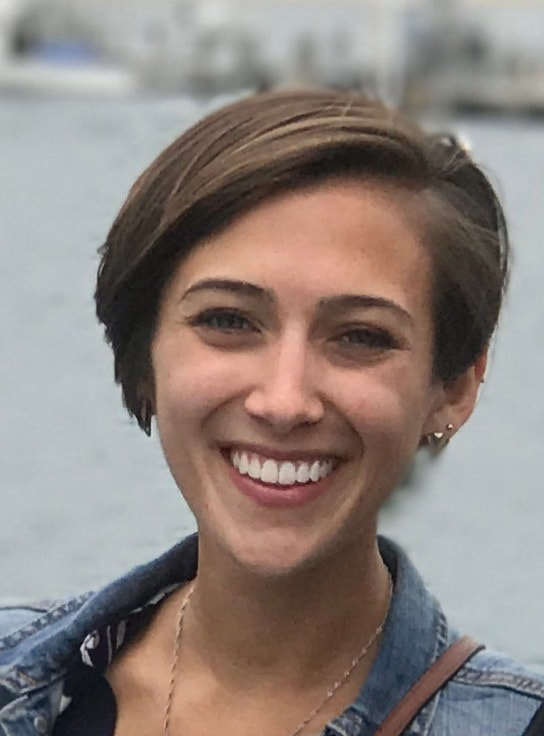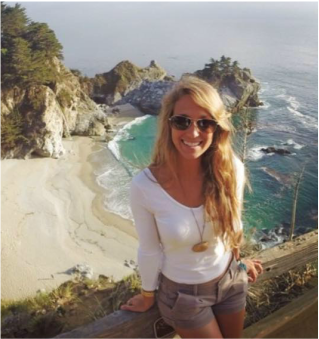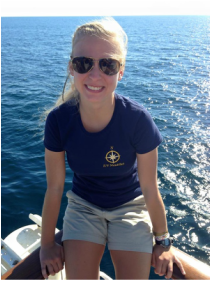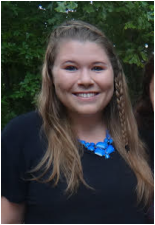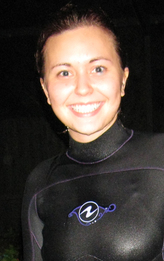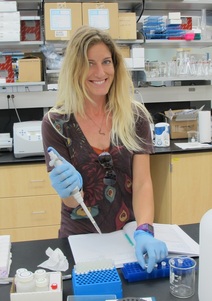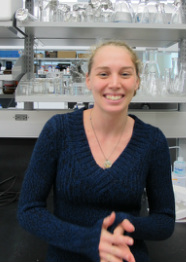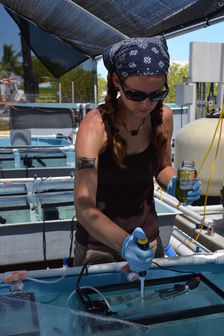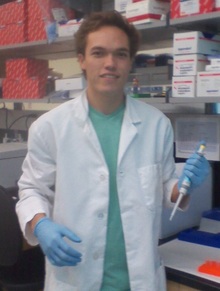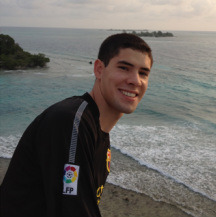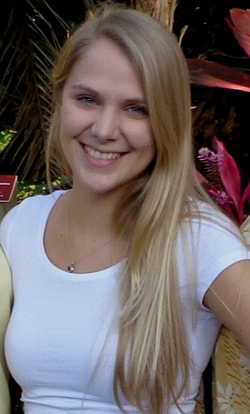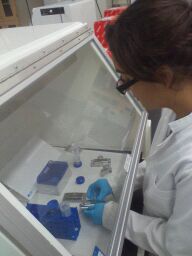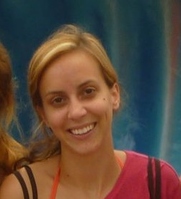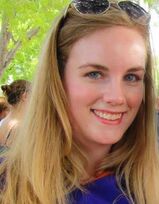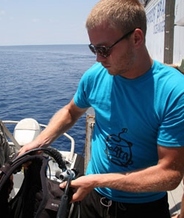Lab Alumni
Malachy McCaffrey
|
Malachy joined the lab as a Coral Research Technician in 2023 assisting in boating and diving operations, and molecular laboratory work. Malachy received a B.S. in Marine Biology from the University of Rhode Island in 2020, during which time he gained scientific diving experience as a Coastal and Environmental Research Fellow working with Dr. Graham Forrester. Using DNA barcoding and phylogenetic comparative methods, he clarified host-parasite interactions between cryptic species of reef goby and parasitic copepods. Malachy then learned diver-based reef monitoring practices in Bonaire and gained insight into how the National Parks Bonaire Foundation (STINAPA Bonaire) carries out coral reef conservation efforts. Following graduation, he worked for Saltwater Inc. as a fisheries observer in Alaska supporting the NOAA Fisheries North Pacific Observer Program. Prior to joining the Voss Lab, Malachy managed the System-Wide Monitoring Program for the Mission-Aransas National Estuarine Reserve in Port Aransas, Texas. Malachy will begin in the PhD program at the University of Rhode Island in Fall 2024.
|
Sydney Bell
|
Sydney Bell joined the lab as a Master's student in June 2021 and graduated in May 2023. As part of Florida’s largest coral restoration experiment to date, Sydney used high-resolution 2bRAD and ITS2 sequencing to genotype the corals and characterize their algal symbiont communities for our collaborative Restoration Team Trials project. She recently was awarded a scholarship by the Women Divers Hall of Fame (WDHOF) to advance her diving and photography skills. After continuing her research in the Voss lab for summer 2023, Sydney is now pursuing her PhD in Dr. Kate Quigley's lab at James Cook University in Australia. During her undergraduate career, Sydney interned at Mote Marine Laboratory’s Elizabeth Moore International Center for Coral Reef Research and Restoration and at the Cayman Islands at the Central Caribbean Marine Institute. Sydney received a B.S. in Marine Vertebrate Biology with a minor in Ecosystems and Human Impact from Stony Brook University in 2021.
|
Haley Davis
|
Haley Davis joined the lab as a Master's student in June 2021 and graduated in May 2023. Previously, throughout her undergraduate studies in Environmental Science at Baylor University, Haley was heavily involved as an undergraduate research assistant studying coastal ecotoxicology in Dr. Cole Matson’s lab. She integrated this ecotoxicology experience into her NOAA Hollings Scholarship in which she worked with Dr. Cheryl Woodley investigating the effects of a systemic pesticide on corals and coral-reef-dependent organisms. Haley’s experience in field research with the Roatan Institute for Marine Sciences and the Environmental Institute of Houston paired well with her pursuit of her PADI Master Scuba Diver Trainer certification and dive boat operator status to make her an asset in the field. Throughout her time at Harbor Branch Oceanographic Institute, Haley conducted research on the lower salinity tolerance of several stony coral species in an effort to inform freshwater reservoir management in Southeast Florida. Since her graduation, Haley has taken a role as a Research Fellow at the Central Caribbean Marine Institute where she is conducting thermal tolerance studies on corals and sea grasses in collaboration with partners from various universities and remote field stations.
|
Erin Shilling
|
Erin joined the lab as a Master's student in August 2018 and graduated in December 2020. Her thesis research involved comparing the success rates of various coral disease intervention methods for SCTLD, as well as analyzing any impacts these treatments may have on coral mucus microbial communities. Erin was named an FAU Provost Fellow and awarded an Indian River Lagoon Fellowship. Following completion of her M.S. degree, Erin was promoted to lab manager from 2020-2022, coordinating the two of the lab's ongoing projects with stony coral tissue loss disease (SCTLD). Prior to FAU, she graduated in 2017 from the University of Texas at Austin with a B.S. in Biology, focusing on Ecology, Evolution, and Behavior. Throughout her undergrad career she interned with several non-profit organizations, volunteered in Misha Matz's Lab at UT, studied abroad in Akumal, Mexico, and took part in UT’s Semester by the Sea program. In Fall 2022, Erin moved back to Texas to begin her Ph.D. in Dr. Lauren Fuess's lab at Texas State University.
|
Caroline Haymaker
|
Caroline completed her M.S. degree at FAU Harbor Branch in Spring of 2022. For her master's thesis, Caroline assessed stony coral recruitment patterns in southeast Florida and worked to develop new eDNA markers for target coral species through CIOERT to enhance ocean exploration and monitoring capacity. After graduating Caroline accepted a position as Associate Collections Manager at the Natural History Museum in Los Angeles, focusing on marine invertebrates and eDNA in their Marine Biodiversity Center.
Caroline received a B.S. in Biology with a concentration in Conservation Leadership from Old Dominion University, including research with the Barshis Lab. After ODU, Caroline completed an internship at the University of Western Australia and then served as an adjunct instructor at Tidewater Community College. |
Elizabeth (Elle) Cohen
|
Elle Cohen worked in the Voss Lab as an intern while she was an undergraduate student at Florida Atlantic University’s Harriet L. Wilkes Honors College with a concentration in marine science. She graduated in Spring of 2022 and plans to pursue her M.S. degree in Engineering in Fall 2022. Her undergraduate thesis focused on the generation and processing of 3D coral colony models to more accurately assess how the tissue loss rates on corals are affected by the various intervention methods used to treat stony coral tissue loss disease. Elle was a Semester By The Sea student and was also a member of the Marine Biology Club at the Honors College. Previously she has volunteered for Mote Marine Laboratory at their aquaculture park. She has recently accepted an engineering internship with the City of Tequesta.
|
Ian Combs
|
Ian graduated from FAU and the Voss lab with his Master's in Biology in December 2019, and then served a lab technician on coral health related projects through July 2020. He received a B.S. in Marine Science with a concentration in Marine Biology from the University of Delaware. Ian’s thesis research focused on characterizing the impacts of a newly-described disease known as stony coral tissue loss disease that is currently affecting scleractinian corals throughout Southeast Florida. Ian fate-tracked individual colonies and used photogrammetry and three-dimensional modeling to assess disease progression rates. Before joining the lab, he previously worked as an intern with Mote Marine Laboratory’s Coral Health and Disease Program where he examined genotypic responses to ocean acidification and rising sea surface temperatures in Acropora cervicornis. Ian also interned with Mote’s Coral Reef Restoration Program. Following his successes at FAU Harbor Branch, Ian was again hired by Mote and now focuses on coral ecology, 3D photogrametry, and restoration.
|
Michael Studivan
|
Michael was a postdoctoral fellow who completed his PhD in the Voss lab in May 2018. His postdoctoral fellowship focused on characterizing the response of corals to stony coral tissue loss disease and intervention strategies using RNA-Seq gene expression profiling and 3D modeling. His dissertation research addressed mesophotic coral ecosystem connectivity and mesophotic coral morphology/physiology using microsatellite genotyping, corallite morphometrics, and RNA-Seq gene expression profiling with Montastraea cavernosa from the Gulf of Mexico (Flower Garden Banks and Pulley Ridge) and the Mesoamerican Barrier Reef (Carrie Bow Cay, Belize). Prior to his graduate work at HBOI, he completed his undergraduate degree at St. Mary’s College of Maryland with a senior thesis describing the effects of oil dispersant exposure on soft coral Xenia elongata bleaching. He is now an Assistant Scientist at the University of Miami's Cooperative Institute for Marine and Atmospheric Studies and NOAA's Atlantic Oceanographic and Meteorological Laboratory.
|
Danielle Dodge Farelli
|
Dani received her Master’s in Biological Sciences in December 2017. Her thesis research encompassed two main objectives: 1) a population genetic analysis to assess connectivity of a dominant coral species on the Florida Reef Tract, and 2) a gene expression analysis to identify changes in corals at St. Lucie Reef over a three-year sampling period. Prior to joining the lab in 2015, Dani graduated from the University of Delaware with a degree in Environmental Science and a concentration in Marine Science and previously worked as a research assistant in an Algal Physiology research group investigating the genetic effects of thermal stress on coral algal symbioses. With a passion for education and outreach, Dani has worked with Reef Relief, a non-profit membership organization aimed to protect and improve coral reef ecosystems in Key West, volunteered at the Smithsonian Marine Ecosystems Exhibit, and has given multiple lectures in the local community. Danielle was a 2018 NOAA Knauss Fellow and then an ocean policy fellow with the National Science Foundation’s Ocean Science Division. She now works with NOAA Research (OAR) as their Assistant Chief of Staff.
|
Emily Chei
|
Emily Chei is a former Link summer intern in the Voss Lab. She received her undergraduate degree in Environmental and Sustainability Science at Cornell University. For her summer research project, she used microsatellites to examine population connectivity of Montastraea cavernosa along the northern Florida Reef Tract. Prior to her time at FAU Harbor Branch, she was an REU intern at the Virginia Institute of Marine Science working on food web ecology of oyster reefs, and she participated in the Cornell Ocean Research Apprenticeship for Lynch Scholars. Emily is interested in studying marine ecology and climate change. She is pursuing her PhD at the University of Hong Kong’s Swire Institute of Marine Science.
|
Diana Perez
|
Diana Perez is a recent graduate of Florida Atlantic University's Harriet L. Wilkes Honors College. She started as a volunteer during the Spring 2018 Semester by the Sea program, then continued with the Voss Lab for her undergraduate thesis research. Her project quantified changes in zooxanthellae density and chlorophyll concentration of corals from the mesophotic transplant experiment at the Flower Garden Banks in the northwest Gulf of Mexico. She now works for the Palm Beach County Water Utilities Department and is pursuing her Masters degree in Natural Resource Stewardship and Ecological Restoration at CSU.
|
Haley Clinton
|
Haley Clinton is a recent graduate of Florida Atlantic University's Harriet L. Wilkes Honors College. She is a former Semester by the Sea volunteer in the Voss Lab, where she assisted in 3D scanning and zooxanthellae counts of corals from the northwest Gulf of Mexico. She is also a Natural Science and Environmental Education Intern with the Friends of John D. MacArthur Beach State Park in North Palm Beach. Haley is now pursuing her masters degree at Northeastern University.
|
Ashley Reaume
|
Ashley Reaume is a former Link summer intern who optimized a protocol for extracting and amplifying zooxanthellae DNA preserved in TRIzol. She completed a double major in Biology and Environmental Studies at Central Michigan University, as well as working in Dr. Andrew Mahon’s Aquatic Molecular Ecology Lab. Prior to her work at Harbor Branch, she participated in two marine science NSF REU programs at Savannah State University and the Duke University Marine Laboratory. Ashley recently graduated from CMU and plans to pursue a graduate degree in marine science with a focus on molecular ecology. For summer 2018, she was an intern at the Smithsonian Marine Station in Fort Pierce. Ashley is now pursuing her master's degree in Dr. Michele Gaither's lab at UCF.
|
Alycia Shatters
|
Alycia Shatters graduated with her M.S. in Biology in May 2017. Her thesis research focused on the effects of water quality on coral and algal communities located on the St. Lucie Reef through the use of mesocosm communities built to model the natural environment. She completed her B.A. in Biology at New College of Florida, where she worked on creating a protocol to isolate high quality DNA from recalcitrant tissues such a R. mangle. Afterward she spent two years with the Peace Corps spreading awareness of environmental conservation to the youth living in the Amazon Rainforest. Alycia is continuing her research and conservation efforts as an employee of the Florida DEP Coral Program.
|
Patrick Gardner
|
Patrick Gardner is the former research coordinator of the Robertson Coral Reef Program. Previously, he attended Eckerd College where he graduated with a BS in Marine Science. Following graduation, he pursued his MS degree in Fisheries and Aquatic Science at the University of Florida. His thesis project focused on reproduction of invasive lionfish in Little Cayman. After graduating in 2012, he continued to work at UF as a Lab Technician and SCUBA Instructor in the UF Scientific Diver Development Program. Most recently, he participated in Dr. Bill Lindberg’s research project using experimental artificial reefs to understand fish habitat quality, movement, and behavior. While at Harbor Branch, Patrick was a key coordinator for field operations and helped to advance our technical diving capabilities. He now works for Thompson Consulting Services, a disaster response and recovery company.
|
Gillian O'Neal Milstein
|
Gillian graduated from the Maine Maritime Academy. She joined the Voss lab in 2016 as a summer intern where she completed a study on the morphometric analysis of Montastraea cavernosa from shallow and mesophotic reefs at Flower Garden Banks National Marine Sanctuary. In Fall 2016 she returned to Maine Maritime Academy where she finished her senior thesis studying the effects of the orange footed sea cucumber, Cucumaria frondosa, on pH and alkalinity. After completing her undergraduate degree, she is now a lab technician at the University of Washington.
|
Jennifer Polinski
|
Jennifer Polinski is a former Masters student who graduated in August of 2016. Her thesis research focused on characterizing algal symbionts (Symbiodinium spp.) in Montastraea cavernosa found on mesophotic coral reefs (>30 m) in the Gulf of Mexico, and comparing these assemblages to those in neighboring shallow corals. Prior to joining the lab as a Masters student in 2014, she volunteered in the lab during the summer of 2013 and worked as an intern in the summer of 2014, doing research in conjunction with the St. Lucie Reef Project. She earned her B.A. in Biology and Mathematics at Albion College in Michigan. Jennifer now works for the Gloucester Marine Genomics Institute in Gloucester, MA.
|
Amanda Alker
|
Amanda Alker graduated from Florida Atlantic University’s Honors College with a concentration in Marine Biology in May 2015. She participated in FAU’s Semester by the Sea program in collaboration with Harbor Branch Oceanographic Institute in the spring of 2013. Following the Semester by the Sea program, she participated in the Harbor Branch summer intern program (2013) under Dr. Voss, studying bacterial communities in coral mucus. After her Harbor Branch internship, was awarded a Research Experience for Undergraduates (REU) internship (Fall 2013) funded by NSF at the Bermuda Institute of Ocean Sciences. There, she studied antibiotic resistance in bacteria near sewage outfalls in Bermuda, under Rachel Parsons and Shervon de Leon. After graduating from FAU, she worked in the Voss Lab as a laboratory assistant. She left the Voss lab in Summer 2016 to pursue a PhD degree at San Diego State University in San Diego, California and was awarded an NSF Graduate Research Fellowship. She recently successfully defended her PhD in 2022 and is weighing several postdoc options.
|
Alaina Weinheimer
|
Alaina Weinheimer was a summer intern who used length-heterogeneity polymerase chain reaction (LH-PCR) to analyze the impact of freshwater discharge from the C44 Canal on microbial communities in coral mucus in the St. Lucie Reef. After completing her bachelors degree at Pennsylvania State University, Alaina attended the Max Planck Institute for Marine Microbiology in Bremen, Germany for her master's degree. Alaina is now pursuing her PhD at Virginia Tech.
|
Nancy Sealover
|
Nancy Sealover was an undergraduate honors biology graduate of University of Maryland, College Park. Before arriving at Harbor Branch, Nancy grew to love coral reefs when she studied abroad in Fiji and took a Coral Reef Ecology and Management class. She spent her summer in the lab learning new molecular techniques in order to genotype coral colonies from St. Lucie Reef and Breakers Reef. She is currently a research assistant and pursuing her PhD at Uniformed Services University.
|
Samantha Johnston
|
Samantha graduated in 2015 from the Honors College of Florida Atlantic University concentrating in marine biology with a minor in environmental sciences. She assisted with Michael Studivan's dissertation research by examining morphological variation of shallow and mesophotic coral skeletons for her thesis. Samantha hopes to continue her studies and eventually earn her graduate degree, focusing her efforts on the effects of both biotic and abiotic factors on coral reef health and the possible solutions that result in effective restoration. Currently she is an Environmental Educator at Tampa Bay Watch.
|
Maureen Williams
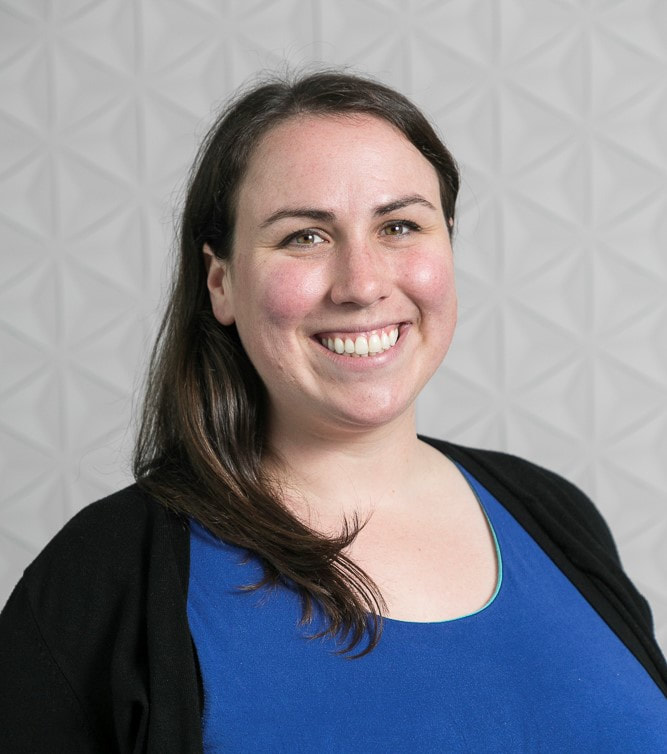
|
Maureen served as the lead lab technician in the Robertson Coral Reef Program working with Dr. Voss and focusing on the St. Lucie Reef and Flower Garden Banks projects. As a native Floridian, she is interested in the broad impacts of human activity on coral reef ecosystems. She attended the University of Notre Dame, where she worked in stream biogeochemistry with Dr. Jen Tank, cheered at football games, and graduated with a B.S. in Biological Science. During her undergraduate years, she completed an NSF REU, a Clare Booth Luce undergraduate research fellowship, and two summer internships at Harbor Branch, during which time she focused on microcosm experiments related to the Deepwater Horizon oil spill. Following her undergraduate years, she was awarded a Naughton Fellowship to complete her M.S. in Environmental Science at University College Dublin, Ireland with Dr. Emmanuel Reynaud. She worked on planktonic community data analysis for the Tara Oceans Expedition and spent time scuba diving and playing tag rugby. In 2014, Maureen was awarded a highly competitive scholarship from the Irish Research Council to pursue her Ph.D. at Trinity College Dublin working with Dr. Ian Donohue and Prof. Celia Holland on the impacts parasites in ecosystem function and stability. After completing a successful postdoc in Dr. Chelsea Wood's lab at University of Washington, Dr. Williams has joined the biology faculty at McDaniel College.
|
Courtney Klepac
|
Courtney Klepac is a former masters student who joined the lab in January of 2012. Her thesis research focused on molecular characterization of the endosymbiotic dinoflagellates (Symbiodinium) in coastal coral hosts near to St. Lucie Inlet. After completing her B.S. in marine biology at Texas A & M University at Galveston, Courtney worked for a non-profit organization, Artist Boat, instructing coastal ecology and instilling stewardship through kayak tours, naturalist watercolor sessions, and habitat restoration. Following the Deepwater Horizon oil spill, she monitored pelagic plankton communities in the Gulf of Mexico as a biological technician with CardnoEntrix. Courtney attended Old Dominion University for her Ph.D. with Dr. Barshis. She is now a postdoc at Mote Marine Lab in their coral program on Summerland Key.
|
Ali Courtemanche
|
Ali is graduate of Florida Atlantic University and a two time Semester by the Sea student who assisted in Dr. Voss’s lab with a focus on molecular techniques to characterize coral's phenotypic responses to depth variation. Previously, she worked in Dr. Binninger’s lab targeting MRS protein deficiencies in Drosophila melanogaster. Ali has always had a passion for marine biology and has found her niche in genetics. She now works at Gumbo Limbo Nature Center in Boca Raton, focused on educating the public about Florida’s coastal habitat and endangered sea turtles. Ali completed her master's degree at FAU in 2020.
|
Lisa Johnson
|
Lisa was a biological scientist in the Robertson Coral Reef Program from 2010 to 2014 who worked primarily on molecular techniques in coral and zooxanthellae gene expression. Her broad research interests include bioinformatics, applying research methods towards the development of adaptive environmental resource management strategies, and working towards sustainable coastal development. Lisa earned a B.S. in Biochemistry with a minor in music from Eckerd College and a M.S. in Biology from the University of North Carolina at Wilmington. She also completed an M.S. in Environmental Resource Management from the Florida Institute of Technology while working at the Indian River Lagoon Aquatic Preserve. Lisa spent two years in the Peace Corps working on coral ecosystems and resource management in Micronesia. Lisa worked as a bioinformatics programmer at NYU Langone Medical Center's Genome Technology Center before moving to UC Davis to complete her PhD in molecular, cellular, and integrative physiology. She now is a bioinformatics specialist at 10x Genomics.
|
Thomas Camacho
|
Thomas was an undergraduate lab assistant from Indian River State College who worked on the St. Lucie Reef project. As a biology major with a strong interest in genetics, doing research in Harbor Branch allowed him to gain experience in gene expression, RNA manipulation, and microarray technology. Thomas is now the COO of Gem of Lebanon LLC and a graduate student studying Sustainable Energy at USF's Patel College of Global Sustainability.
|
Miguel Martini
|
Miguel is an international student from Guatemala and a recent graduate of Florida Atlantic’s Honors College, majoring in marine biology with a business minor. Miguel attended Semester by the Sea in the spring of 2012. The following summer, he volunteered in Dr. Voss’s lab and started to work on his senior thesis, investigating the variable susceptibility of Orbicella faveolata to black band disease. Following graduate studies at Cornell University, Miguel currently works for Betapaint LTDA.
|
Ashley Sproles
|
Ashley is a former lab assistant in the coral reef health and ecology laboratory. She graduated from Florida Institute of Technology in 2012 with a double major in marine biology and conservation biology & ecology. Her research interests include coral-zooxanthellae symbiosis and the conservation of coral reef ecosystems. Throughout her undergraduate studies she has attended a summer field class on coral ecology held in Puerto Rico, attained her AAUS scientific diver certification, and completed internships at the Florida Aquarium and Harbor Branch. At Harbor Branch, she completed a project on the quantification of zooxanthellae and chlorophyll from Diploria clivosa and Montastraea cavernosa coral hosts at St. Lucie Reef, a location where nearby estuarine runoff may be affecting coral health. Outside of work she enjoys attending concerts, spending time outdoors, and taking care of her saltwater aquarium. Ashley competed her Ph.D. at Victoria University in New Zealand and then a postdoc at UCSD focused on developing advanced genetic tools for the engineering of green algae to produce sustainable commercial bioproducts and biofuels. After her postdoc Ashley joined Molecular Assemblies, Inc. in San Diego as a research scientist.
|
Ana María González-Angel
|
Ana is an international student from Colombia and was a Link Foundation summer intern with the Robertson Coral Reef Program in 2012 studying the effects of salinity, temperature and UV light on coral larvae from the FL Keys. She continued with this research project for her masters from Nova Southeastern University, completed in 2013. Ana then went on to do her Ph.D. at Penn State working under Dr. Mónica Medina in marine genomics. She is now the Laboratory Supervisor and Program Manager of a genomics and computational biology group at UC Berkeley.
|
Elizabeth Fahsbender
|
Liz was a summer intern who assessed changes in the bacteria communities of coral mucus following exposure to oil, dispersant, and disease. Using length-heterogeneity PCR, she identified shifts in bacterial community structure and additive effects between oil and dispersant. Liz completed her PhD in Dr. Mya Breitbart’s lab at the University of South Florida using viral metagenomics to characterize emerging diseases. Following a postdoc at UCSF, she is now a Product Applications Scientist for the Chan Zuckerberg Initiative.
|
Natalie Harrison
|
Natalie is a former intern and lab assistant in coral molecular ecology. She graduated from Duke University with a Bachelor's of Science in Biology and earned the Maggie Schneider Award in Marine Biology, awarded annually by the faculty of the Duke University Marine Laboratory. At Harbor Branch, she studied the gene expression of corals in transplant experiments, as well the effects of sunscreen exposure on the sea anemone Aiptasia pallida. She completed degrees in law and marine science and policy at the University of Miami, and now serves as a United States Department of Justice trial attorney. Her paper discussing a new legal scheme for protecting Florida's coral reefs was published in Volume 68 of The University of Miami Law Review.
|
Daniel Rowan
|
As an NSF Undergraduate Research and Mentoring Program Fellow with Dr. Voss, Dan studied the effects of temperature and light on the pathogenesis of black band disease in corals. Dan also participated in the 2010 CIOERT FLOSEE Expedition and submitted a great daily blog. After graduating from FAU, Dan returned to Michigan and has held various positions, including biological restoration technician at the Sleeping Bear Dunes National Lakeshore.
|

